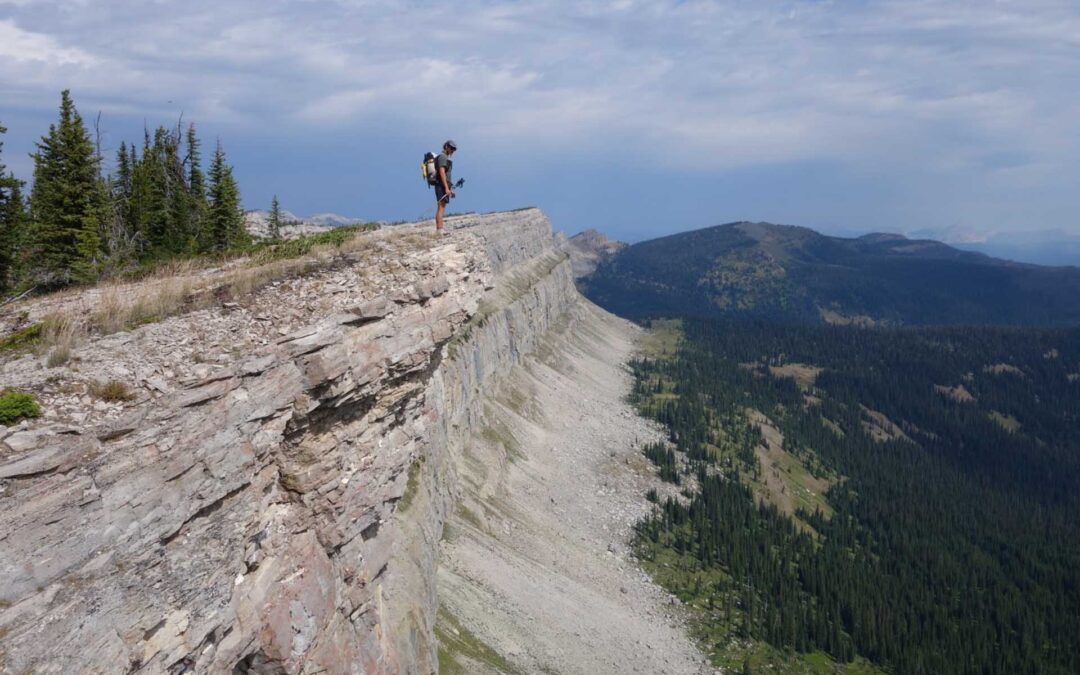GOLDEN, Colo. (November 18, 2019) – A new survey of 200 small business owners along the Continental Divide Trail (CDT) shows overwhelming agreement that protection of public lands is important to the economies of small, rural communities in the Rocky Mountain West. Release of the survey results comes as the Senate Energy and Natural Resources Committee prepares to vote Tuesday on a bill that would permanently provide full funding for the Land and Water Conservation Fund (LWCF) – a measure that is supported by 98% of the survey’s respondents. The answers provided by these small business owners provide strong evidence that the CDT and the people that use it are a vital and growing part of the economic activity in towns along the 3,100-mile National Scenic Trail – and that business owners see the economic value in protecting the Trail and the public lands it traverses.
Of all business owners who responded:
- 97% believe that protecting, promoting and enhancing public lands is important to the well-being of their community’s economy
- 88% have seen growth in business in their community in the last five years due to use of the CDT
- 58% have seen growth in their business in particular in the last five years due to use of the CDT
Because the CDT stays as close as possible to the geographic Continental Divide as it makes its way from Canada to Mexico, the 32 communities represented by the respondents are predominately small, rural mountain towns. Respondents work in a variety of industries, from hotels to health care, but the vast majority own what can truly be called “small” businesses: more than half took in less than $200,000 in gross revenues in 2018, and 92% employ fewer than 25 people during peak season.
“People come to Lincoln from all over the world because of the Continental Divide Trail,” said Laurie Richards, owner of the Wheel Inn and President of the Lincoln Chamber of Commerce in Lincoln, MT. “Tourism is our main industry now – protecting public lands is absolutely vital to my business and those of my neighbors.”
By focusing on small business owners in communities along the Continental Divide, the new survey provides more local, personal context to recent national studies of the booming outdoor recreation industry. Just last month, the non-partisan Headwaters Economics released a report analyzing new state-level data from the Bureau of Economic Analysis. Their analysis showed that growth of the outdoor economy significantly outpaced that of overall GDP in every Rocky Mountain state from 2012-2017.
Because these business owners report seeing firsthand the positive economic impacts of the CDT in their communities, it comes as little surprise that many are passionate advocates of the Land and Water Conservation Fund (LWCF), which is a critical tool in efforts to complete the Trail. A full 98% of business owners who responded support Congress providing dedicated, full funding for LWCF. The Senate Energy and Natural Resources Committee is scheduled to vote Tuesday on a bill that would guarantee full funding of the LWCF each year. Earlier this fall, more than 200 Rocky Mountain business owners issued open letters urging Congress to pass legislation that would guarantee full funding for LWCF.
“It doesn’t matter what party you vote for – in a community like Chama, we can all agree that public lands are vital to our way of life,” said Austin Phippen, owner of the Chama Trails Inn in Chama, NM. “Business owners like me know that especially well, which is why we support full funding for the Land and Water Conservation Fund – so we can continue to protect these places that sustain us.”
A report of the full survey results can be found here.
###
About the Continental Divide Trail
The CDT is one of the world’s premiere long-distance trails, stretching 3,100 miles from Mexico to Canada along the Continental Divide. Designated by Congress in 1978, the CDT is the highest, most challenging and most remote of the 11 National Scenic Trails. It provides recreational opportunities ranging from hiking to horseback riding to hunting for thousands of visitors each year. While 95% of the CDT is located on public land, approximately 150 miles are still in need of protection.
About the Continental Divide Trail Coalition
The CDTC was founded in 2012 by volunteers and recreationists hoping to provide a unified voice for the Trail. Working hand-in-hand with the U.S. Forest Service and other federal land management agencies, the CDTC is a non-profit partner supporting stewardship of the CDT. The mission of the CDTC is to complete, promote and protect the Continental Divide National Scenic Trail, a world-class national resource. For more information, please visit continentaldividetrail.org.

